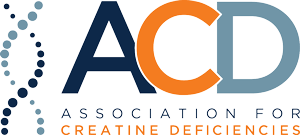2021 CCDS Virtual Conference Archive
The focus of this meeting was to share the latest CCDS research and to broaden our research network. We heard from researchers on a variety of topics and were joined by industry partners who provided their insights into therapeutic development for rare diseases.
Caregivers, researchers, scientists, medical professionals, and industry stakeholders were in attendance and participated in the Q&A discussions following each session.
To support research, ACD can help with biosamples, survey data, research grants, and other forms of collaboration. Please reach out to our research team at research@creatineinfo.org if you’d like to collaborate.






